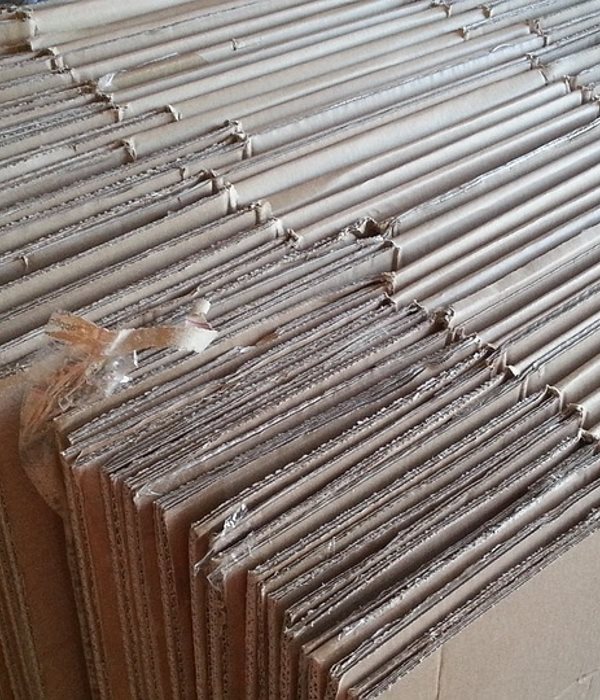April 1, 2017 5 min to read
Moving day and a province of renters. The frenzy of July 1st!
Category : Differences
The apartment rental process is a lot different in Québec than, well, probably anywhere else in the world. Let’s see how and why.
The first thing that surprises pretty much everyone, is that probably 90% of the leases start on July 1st, and that regardless of when you sign your lease, there is a 95% chance it will end on June 30th.
You find a perfect apartment in October? Your lease will expired on June 30th. You find a great apartment in March? Your lease still expires on June 30th, either a few months later or about 16 months later.
Contrary to many English-Canadian commentators, this isn’t an irrational plot to ruin Canada Day.
There is a perfectly reasonable explanation as to why almost all of the leases start on July 1st and expire on June 30th.
In Québec, any long term lease agreement needs to be paid monthly, and for the whole month. By law, all lease agreement start on the 1st of the month, and end on the last day of the last month.
This means that lease agreements can only start on 12 days per year: the 1st of each month!
Only 2 of those days are always holidays: January 1st and July 1st, but it’s better to move in the summer…
And yet, despite the fact that its logical, that’s not even the reason why almost all of the leases expire on July 1st!
The real reason is historical…
French law used to specify that all agreements, including leases, which had an expiration date, would start on May 1st and end of April 30th. It even became part of the Civil Code of Québec (Lower Canada), in 1866. May 1st became known as “Moving day”.
It’s in 1973 that the Government of Québec (a federalist government of Robert Bourassa, in case you are wondering), decided to change the moving day to July 1st in order for that moving day to occur on a holiday while allowing children to complete their school year even if they move far away.
In an odd move, the law abolished the official moving day, allowing leases to expire at the end of any months, but at the same time, it changed extended by 2 months the end-date of all leases expiring on April 30th so they would expired on June 30th instead and the tradition stuck.
But why are there so many moves on July 1st?
In Québec, there are many advantages to being a tenant:
- Relatively low cost of leases, owed to the fact that all apartments are almost rent controlled via guidelines published yearly (in practice, they are not mandatory, but most landlord follow the guidelines)
- Near impossibility for a landlord to terminate a lease: they auto-renew until only the tenant decides to stop the lease
- Wide number of apartments available for rotation each year due to a tradition for many French-Canadians to move almost yearly, always searching for a better apartment
- Strict laws banning the practices of asking for any money on top of the lease such as security deposits or key fees which makes it safer to rent in Québec than elsewhere
- In fact, tennants are rarely responsible for the regular damages they cause to their apartment
- Strict first-come first serve basis when renting an apartment: if you are the first to ask for a lease and you pass a credit report check, you get the apartment. The landlord cannot “shop for tennants” and choose the “best” one or ask for bids and let the apartment to the one willing to pay the most
- Landlords can’t even really make inspections to make sure you are properly taking care of the apartment!
In the only amounts the landlord can ask for on the lease signature is the first month rent!
Then what is so special about March 30th?
Most of the apartments are listed during the end of March or the beginning of April, and that’s when most of the leases are signed (even if the lease signing period extends until May).
The reason is that long-term tenants (anyone renting for a year or more, which is 95% of the leases) have 3 months before the end of the lease to choose to not renew it.
If your lease expired on June 30th, that means you have until March 30th to tell your landlord you are moving.
As tenants announce to their landlords in March they are not renewing, new apartments arrive daily on the rental market, until April 1st, when in theory, the market is at its summit.
Due to the first-come first-serve rule, highly desirable apartments (either low-cost or high-value) are often rented in only a few days, with the rest being rented in the first half of April or so.
You can still find apartments in May, because some tenants wait until then to not renew their lease, but that comes as a risk: if the landlord doesn’t find a new tenant, the old tenant is still responsible for the following year’s lease…
If the rent increase is so low, and the tenant selection process so restricted why would anyone want to become a landlord in Québec?
To be honest, that’s a baffling question. Why would anyone take the risk of becoming a landlord? If you don’t find a new tenant in time for July 1st, you risk loosing a full year of revenue! If your tenant cuts and run in the middle of the year, you lose revenues. In fact, if your tenant trashes the apartment, you are on the hook for the damages and perhaps, the lost revenue.
Even if your tenant stops paying and chooses to stay anyway, your chances of a quick eviction are very slim!
To top it all, most of the landlords do not make enough rental profit to both pay maintenance costs and the mortgage…
But it’s still worth it for many, long-term: once the mortgage is fully paid, you get pure profit, but in reality, the apartment block is often re-mortgage to buy another, bigger block.
So when does the landlord really make a profit?
When he resells his apartment block. That’s where the money is. Your rental revenues pay the maintenance, the mortgages, the municipal taxes so that when you decide to retire, you have a well maintained building, mortgage free, you can sell for pure profit.
When you buy a house $300,000 and sell it 25 years later for $400,000, you made, in theory, $100,000 in profit, because that $300,000 came out of your pocket. In reality, the interests on your mortgage ate your actual profit, but people tend to forget that.
But when you buy an apartment block say, $800,000, and sell it 25 years later for $900,000, you made, in theory, $900,000 in profit, since the $800,000 was actually paid for by your tenants.
Even better, if you are retired, you are in a low enough income bracket to make the capital gain on the sale (in the above example, the $100,000 in profit) interesting.


Comments (1)
-
Why many Québecois aren’t excited about the 150th anniversary of Canada – What does Quebec Want? July 1, 2017
[…] Of course, many Québec residents will celebrate July 1st another way… […]